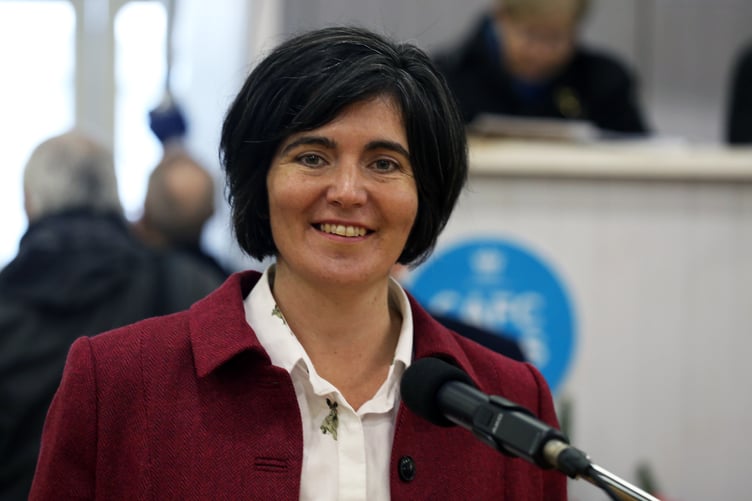We all enjoyed a fantastic few days at this year’s Royal Welsh Winter Fair, held at the showground in Llanelwedd last week, writes NFU Cymru Deputy President Abi Reader.
There was a real community feel at this year’s Winter Fair and it was great to engage with members, stakeholders and politicians over the two days. The Winter Fair is an important event to showcase the best of rural Wales and to discuss the opportunities and challenges facing the agriculture sector. It is a fine example of the unparalleled contribution that Welsh farmers make to the economic, environmental, social and cultural well-being of Wales.
As one of Europe’s finest prime stock shows, the Winter Fair draws crowds from far and wide to enjoy two days packed full of competitions, festivities, food and drink, and shopping. The Winter Fair plays an important role in showcasing all the hard work that farmers do all year round. The agricultural sector spends the entire year preparing for Winter. As farmers we spend spring, summer and the autumn lambing, calving, planning, harvesting our crops, making sure everything works within the best of our control and when we come to the Winter Fair, this is the showcase of the fruits of our labour.
There is a real pride in farming in this country – a pride which stems from the sector’s prominence in Welsh history and culture, from how it has helped shape our iconic countryside through the ages to its incredibly high standards of animal health and welfare.
Welsh farmers can be proud that we produce high-quality protein on marginal land, which is largely unsuited for arable crops. We do so in non-intensive systems, using grass and rainwater to rear animals, thereby avoiding contributing to deforestation and unsustainable use of water resources elsewhere in the world.
We can further reduce greenhouse gas emissions and cut waste, in ways which will promote the economic and cultural sustainability of the vibrant Welsh communities which are sustained by livestock agriculture and food production. Livestock agriculture is also unique; alongside working to lower its impact, it can also contribute positively to carbon sequestration, soil regeneration and increased biodiversity.
As farmers we can ensure that consumers, when choosing PGI Welsh lamb or PGI Welsh beef, can be confident that their meat is produced to the highest possible standards of sustainability, and to play our part to combat our shared global challenges of climate change and food security.




Comments
This article has no comments yet. Be the first to leave a comment.